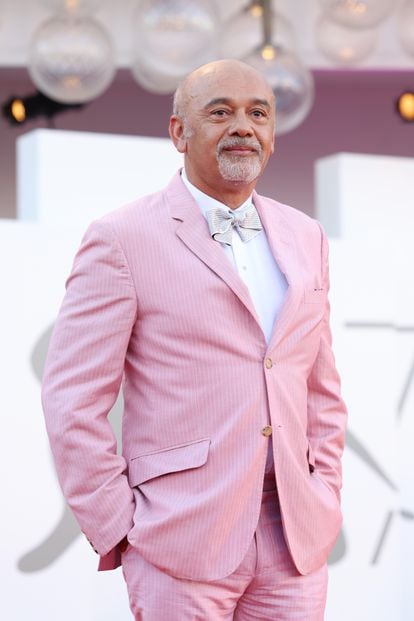“We’re designing six to eight months in advance, so I think we’re more boutique style,” she surmises. “I think we’re more like an Australian designer brand. There’s a massive demand from our customers [so] we just keep on designing to keep up with their wants and needs. They have a lot of occasions they want dresses for.”
Following in the footsteps of other Australian-born fashion-tech juggernauts such as White Fox and Meshki, the use of social media influencers has been an essential part of Babyboo’s marketing mix and proven just as integral to their international expansion. “We’ve worked with Tammy Hembrow, Olivia Pierson, [Kardashian bestie] Khadijah Haqq McCray, as well as [British] reality stars like Samie Elishi and Ella Rae Wise,” says Conditsis.
“We’ve built this from the ground up and all the profits are reinvested,” says Conditsis. Louie Douvis
Many of the pieces are priced to hit that mass-market sweet spot between $99 and $159, and Babyboo’s hyper-feminine designs range from a demure take on dominatrix (think hot-pink vinyl bodycon mini-dresses and shiny red plunging-neckline bodysuits); to outfits that require one to go commando (strappy semi-sheer jersey moulded dresses and stretch-satin curve-hugging goddess gowns with thigh-high splits).
“Our business journey has been rapid from the get-go,” says Conditsis of her company that’s now valued at $60 million. “Revenue doubles year on year [135 per cent-plus] and they’re designs that are resonating with a global audience. America is our next biggest market after Australia, followed by the UK.”
Sales ground to a halt when COVID hit, as they did for many other eventwear brands. However, by diversifying their product offering with the introduction of loungewear, revenue increased 44 per cent by June 2020.
I ask what her parents think of the siblings’ success – her mother is a housewife-turned-schoolteacher, her father is a landscaper. “We’re Greek so of course everyone was shocked when I dropped out of first-year university to do this – and then it didn’t help that my brother followed suit. Everything the two of us have learnt business-wise has come from self-development and self-learning. We haven’t had any inheritance given to us to help – people like to say we have, but it’s not true. We’ve built this from the ground up and all the profits are reinvested.”
Although she admits there’s not a day she switches off, Conditsis still loves what she does so doesn’t consider it work. “I still have a lot of hunger in me, to be honest.”
The November issue of AFR Magazine, including the Young Rich List, is out on Friday, October 27 inside The Australian Financial Review. Follow AFR Mag on Twitter and Instagram.




